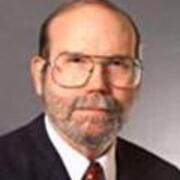Have questions about this report? Ask the author(s).
Defines and discusses the importance and characteristics of the global knowledge economy, with measurements of the size of the knowledge economy nationally and in Arizona presented. Knowledge is now recognized as the driver of productivity gains and economic growth, leading to a new focus on the role of information, technology, and learning in economic performance.

After earning a B.A. in economics from the University of California at Berkeley, Tim received a M.A. in economics from the University of California at Davis and a Ph.D. in economics from Virginia Tech University in 1971. Tim was a faculty member in the ASU Department of Economics from 1970 until he retired in 2004. He began working for the predecessor of the L. William Seidman Research Institute in the 1970s and has been associated with the Institute since it was established, serving as director from 1995 through 2004.

Summary table of ASU's economic impact in FY2025

An update to the December 2023 paper that presented data through 2023, estimates are presented of the number of ASU graduates working in Arizona, as well as their average wage, aggregate wages, and tax payments. Estimates are made for each year from 2012 through 2024.

This infographic estimates the total (direct, indirect and induced) economic impacts of the infusion of new dollars associated with Sun Devil Football regular season home games in 2024-25 season the…